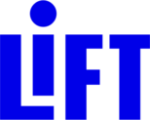Written by Damon C. Williams
Instead of large think tanks and groups of rather disassociated folks talking haughtily about the ills facing society, Drexel University and its nonprofit partner LIFT have collaborated on a novel program that brings together two disparate groups – one from the university and the other composed of LIFT clients – to better identify social issues and come to an agreement on the best ways to confront the problems.
“Urban Society” – a multi-week class that spurs collaborative thought between Drexel students and the clientele at LIFT – is designed to get input from the two groups perhaps affected the most by social policy. LIFT serves a predominantly low-income, at-risk minority clientele from offices in North and West Philadelphia by helping them attain economic stability through workforce training and other programming.
“It essentially brings together 15 Drexel students and 15 LIFT clients to work and learn about urban life in Philadelphia,” said Drexel University assistant teaching professor and community outreach coordinatorr Cyndi Rickards, mentioning that the program is modeled after Temple University’s prison program “Inside Out” and that Drexel is now expanding that program into the community. “But this is different, because [the groups] are learning as colleagues. They all receive three Drexel credits, write the same papers and read the same books, but everyone brings his or her own unique perspective.
“So the traditional Drexel student learns with someone who may have been incarcerated or had a drug dependency problem, and they talk about how [those issues] impact social policy in Philadelphia,” Rickards said. “Everyone brings in a different voice.” The plan, she said, is for the group’s collaborative effort to lead to a joint proposal that highlights both the sociological issues and the solutions recommended by the group.
That joint proposal will be unveiled during the group’s program-ending celebration, scheduled for Dec. 5.
“It is unbelievable to see the transformation when you bring two different groups together to learn,” Rickards said. “No one has an agenda. If we did this more often, we’d solve problems more efficiently, and with much more humanity.”
This is the first year the program has been implemented outside of prison walls, and after early shyness and apprehension, the two groups have managed a respectful working relationship. And more important, both groups seem to be benefitting, as the students gain insight they may not otherwise obtain, and LIFT clients get a chance to have direct input in crafting social solutions.
“I would argue that leaving Drexel’s campus and going to LIFT’s office and meeting colleagues who are identified as low-income, a group of people they wouldn’t probably realistically interact with, is essential,” Rickards said. “It provides for rich, personal reflections and creates an appreciation for other voices and experiences.
“Academics are important, but the influence of learning directly from this group is important as well.”
LIFT Program Manager Gina Gendusa leads the programming alongside Rickards, and she too believes the meeting of minds alone makes the program worthwhile.
“It’s been amazing. People from college and the community sitting down and having a conversation – people who wouldn’t normally talk or even say ‘hello’ to each other on the train, these people come together and talk about things that are pretty deep,” Gendusa said. “It’s an urban life and sociology class that really brings out interesting things about race and poverty, and it also brings out a lot of personal experiences, experiences that one couldn’t even think of.
“It is just really wonderful to see in action, to see the relationship growing between community members and Drexel students” Gendusa continued, noting that, anecdotally, she can tell the groups are truly engaged in the program. “Now when they talk, they understand the context and you see barriers dissolving between people. It all relates back to personal experiences and using those experiences to investigate society.”
